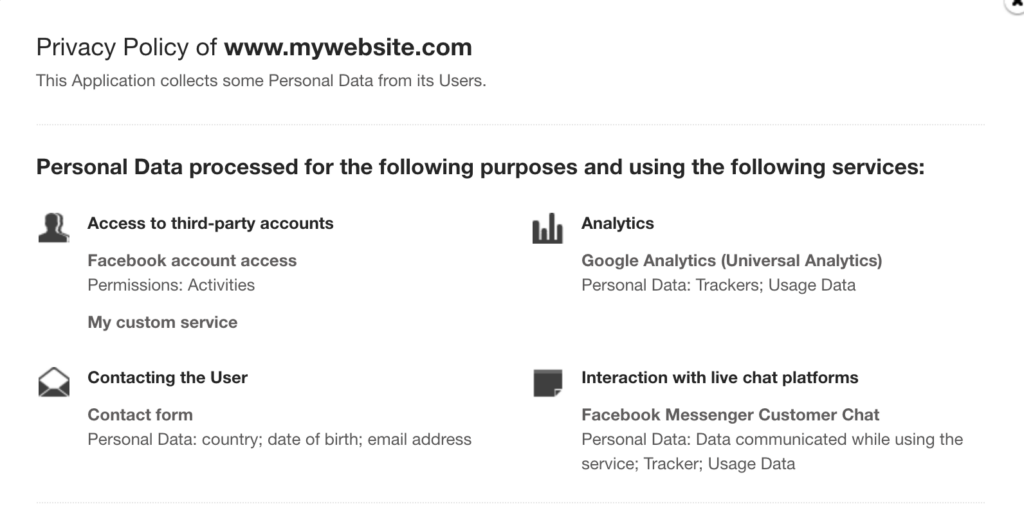The term legalese is often used in a derogatory way, to describe a language that is overly technical and unclear.
In this short guide, we explain what is legalese and when you should avoid it for your legal documents.
In short

What is legalese?
According to the Merriam-Webster Dictionary, legalese is the specialized language of the legal profession. Legalese is also used to describe language that is overly complex and ostentatious, often as a result of striving for precision, but which can unintentionally create a sense of formality and authority in speeches or written documents.
What is another word for legalese?
Synonyms of legalese are bureaucratese, officialese, or lawyerspeak.
What is an example of legalese?
You can find examples of legalese in many legal documents for websites, such as privacy policies or Terms and Conditions.
By accessing and using this website, you acknowledge and agree that the Company may collect, store, and process your personal data, including but not limited to your name, email address, and browsing behavior, for purposes of improving user experience, optimizing marketing efforts, and ensuring compliance with applicable legal and regulatory requirements. Such data may be shared with third-party service providers for the express purpose of facilitating these objectives, subject to appropriate confidentiality and data protection obligations. Notwithstanding the foregoing, you retain the right to withdraw consent, access, rectify, or request deletion of your personal data, subject to the limitations provided under applicable law.
In the paragraph above, the company is saying that:
- They will collect and process personal data from users, such as name, email, browsing behavior, and more.
- They will use this data to improve user experience, optimize their marketing activities, and comply with applicable laws.
- They may share users’ data with other companies, to fulfill their purposes.
- Users have the right to withdraw consent, access, correct, or request deletion of their personal data.
You can see how just breaking down the text into bullet points makes it easier to read.
Why you should avoid legalese in your documents?
Legalese isn’t always a bad thing.
Like any technical language, legal jargon is necessary when you need to be very precise and specific.
However, you should try to avoid legalese when you’re aware that you’re speaking to an audience of non-experts who may have some difficulty understanding this type of language.
For example, data protection laws such as the GDPR state that legal documents should use clear and understandable language. This is because the processing of personal data is often based on consent, which should always be freely given, specific, informed, and unambiguous. If your users don’t understand what they are consenting to, how can consent be informed?
In this case, using simpler language doesn’t mean you’re not being legally accurate, it just means you’re adapting the text to your audience and making it easier to understand.
Avoiding legalese can also help you be more transparent with your users. Transparency is another key principle of privacy laws and can help you build a more solid relationship with your users.
How iubenda can help
iubenda helps you create legally sound documents while maintaining clarity and simplicity. Legal documents created with iubenda have two main views:
Read also
- Data Privacy vs Data Security: What’s the Difference?
- What Are the Terms and Conditions and When Are They Needed?
About us
Attorney-level solutions to make your websites and apps compliant with the law across multiple countries and legislations.

